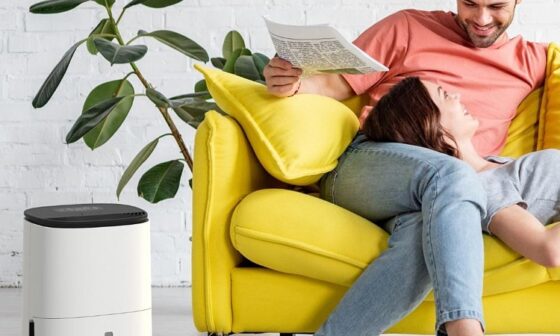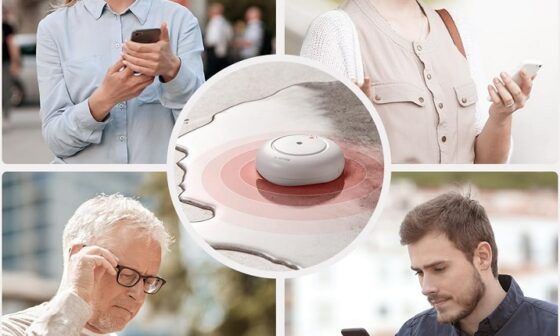Clean air makes a big difference, especially in smaller spaces where things can get stuffy quickly. If you’ve been thinking about getting an air purifier for your bedroom, home office or a snug flat, it’s worth choosing one that actually does the job well without sounding like a jet engine or taking up half the room. Size, noise level, and how often you’ll need to change the filter are all things to think about. Below, we’ve selected some of the best-performing air purifiers for small rooms, focusing on build quality, noise levels, and actual air-cleaning performance.
1

Exceptional
Levoit air purifier for small rooms
What We Like
2

Exceptional
Blueair Blue Pure Mini Max Desk Purifier
What We Like
3

Exceptional
Blueair Blue Pure 511 Compact Room Purifier
What We Like
4

Exceptional
Bosch Air 2000 Purifier with Smart Features
What We Like
5

Excellent
Airtok AP0601 4-in-1 HEPA Air Purifier
What We Like
Key Features to Look For
Filter Type Matters
In small spaces, you want an air purifier that doesn’t just swirl the air about. A HEPA filter is usually the go-to. It captures pollen, pet dander, dust mites, and smoke particles. Some purifiers come with additional filters like activated carbon, which helps with odours and gases. If you’ve got pets or live near traffic, this can make a noticeable difference.
Noise Level
If you’re putting this in a bedroom, office, or nursery, the noise level becomes quite important. Some machines hum gently in the background, others sound like a small fan on full blast. Always check the decibel rating under 35 dB is fairly quiet, around 50 dB starts to get noticeable.
Size and Placement
Smaller rooms don’t mean you should squeeze a bulky purifier into a tight corner. It’s best to check the room size rating of the purifier and compare it with the space you’ve got. Placement matters too don’t shove it behind furniture. It needs room around it to do the job properly.
Energy Usage
If it’s going to be running most of the day, look for one with low power consumption or an energy-saving mode. Some models come with automatic shut-off or sensors that adjust fan speed based on air quality. These small features can save you money over time.
Can I sleep with an air purifier on?
Yes, and in fact, it’s one of the best times to use it. Overnight, your body’s more sensitive to allergens and fine particles, especially if you’ve got asthma or hay fever. Just make sure it’s a quiet model look for something with a ‘sleep mode’ or low decibel level. Also, check for lights that can be dimmed or switched off. Bright LEDs in a dark room can be annoying.
How long does it take to notice a difference?
You might feel a change in the air within a few hours, especially if the room was dusty or had a lingering smell. For allergies, it can take a couple of days to really see the benefits. It depends on how bad the air was to start with and how long you run the purifier each day. Consistency helps. Leaving it on at a low speed most of the time gives better results than switching it on for an hour here and there.
Can an air purifier help with pet hair?
It helps more with pet dander than actual hair. The hair is heavier and tends to settle quickly, but dander, the tiny skin flakes, floats around in the air and can be a real trigger for allergies. A purifier with a pre-filter and HEPA filter can catch a lot of it, especially in smaller rooms where the air is easier to cycle through.


